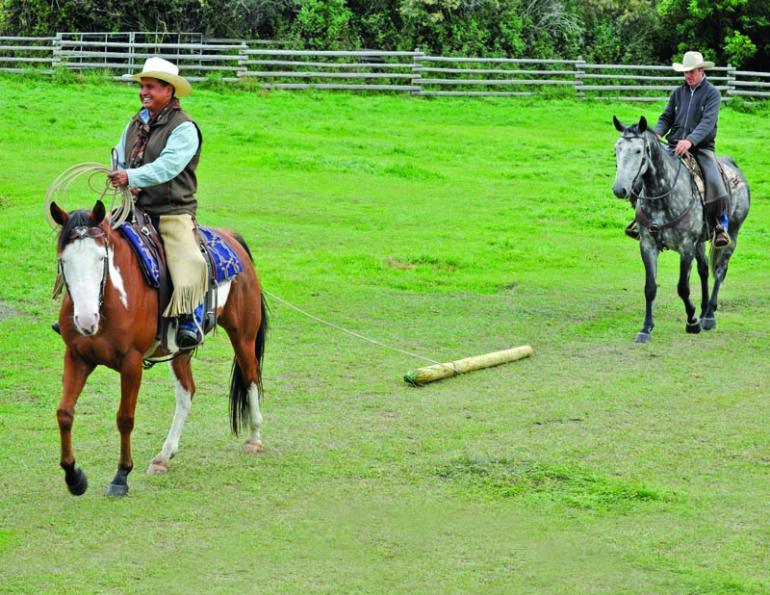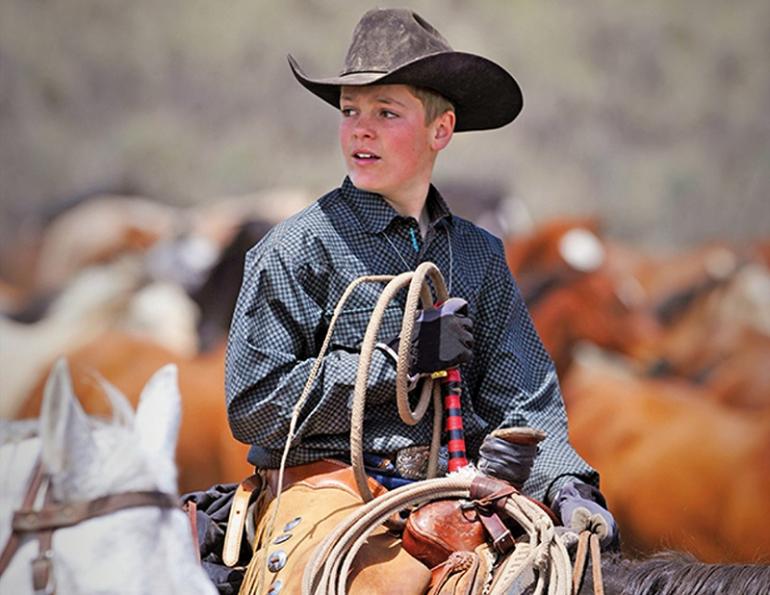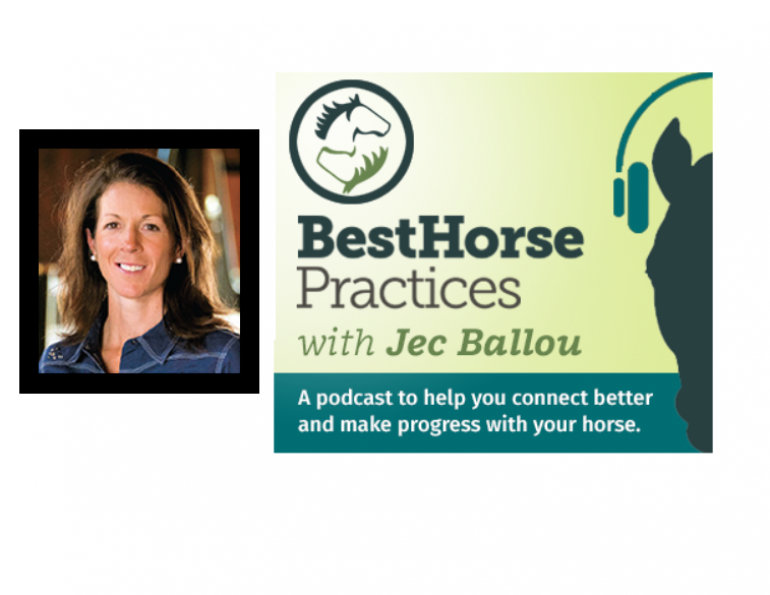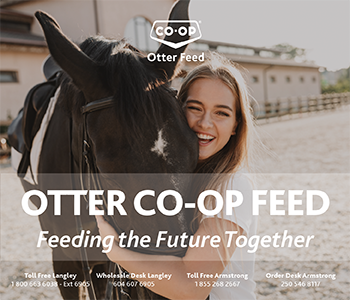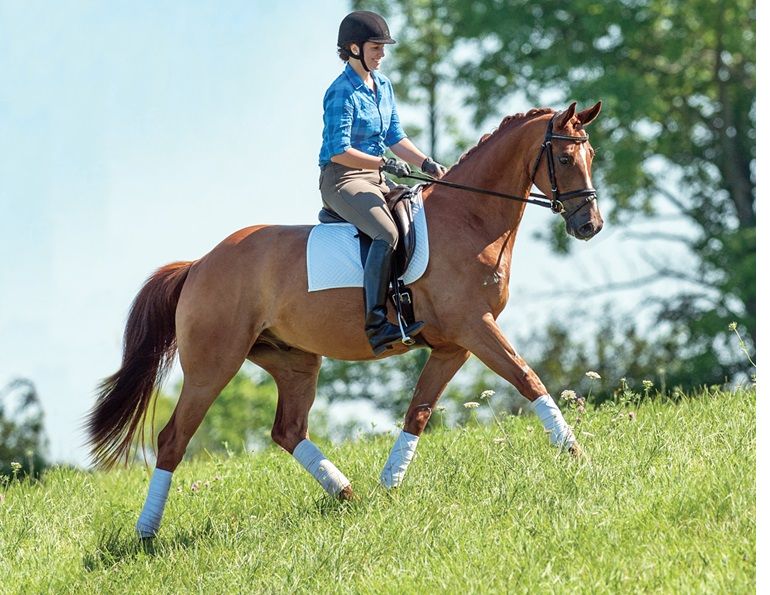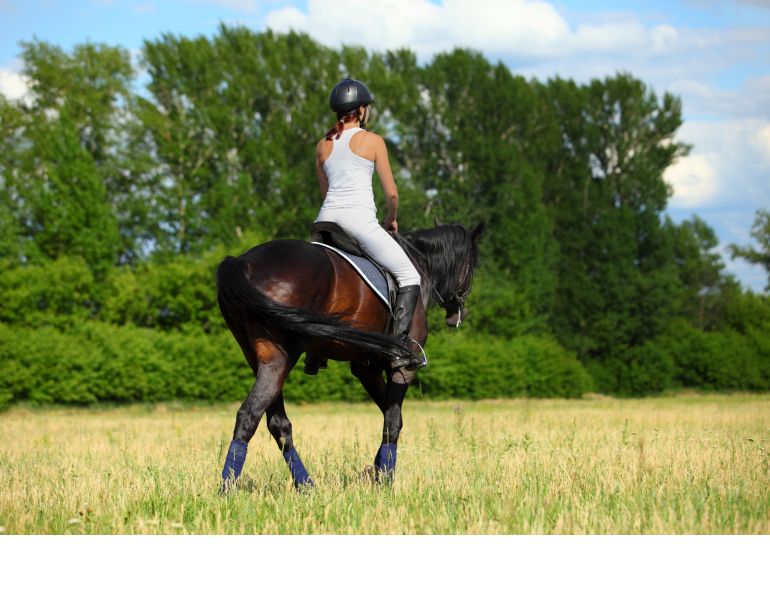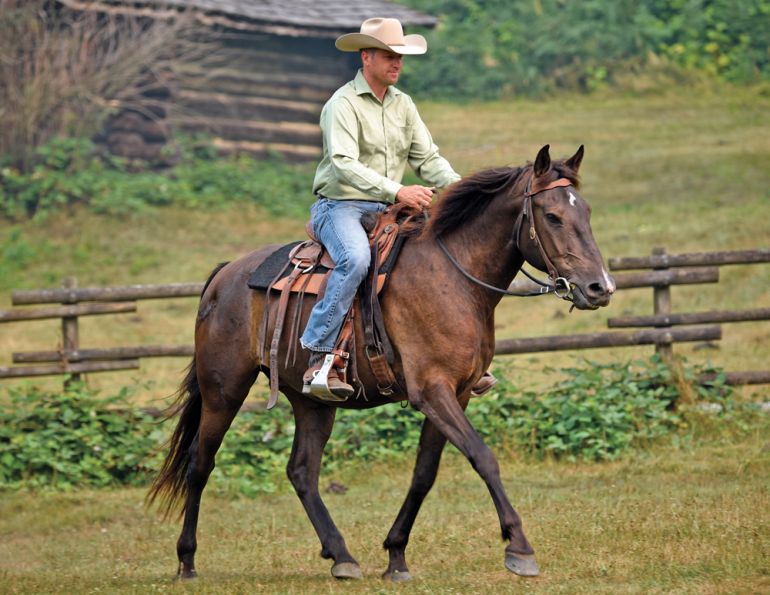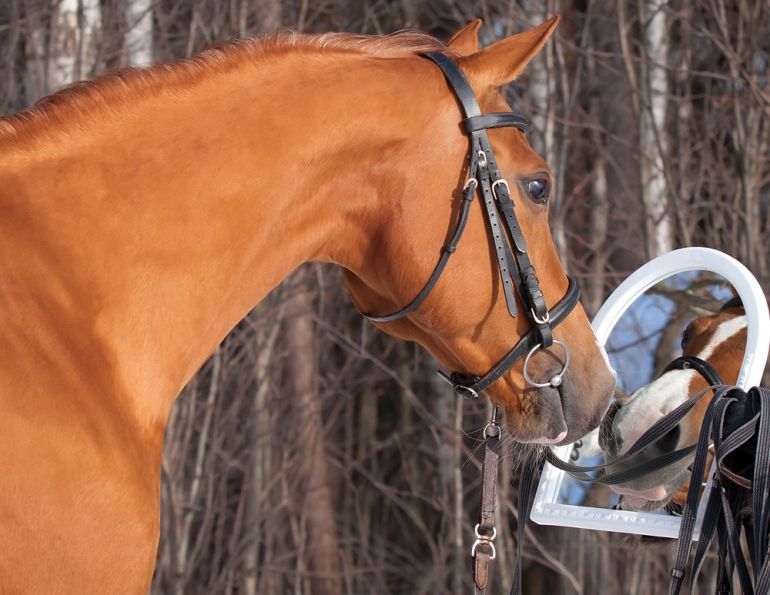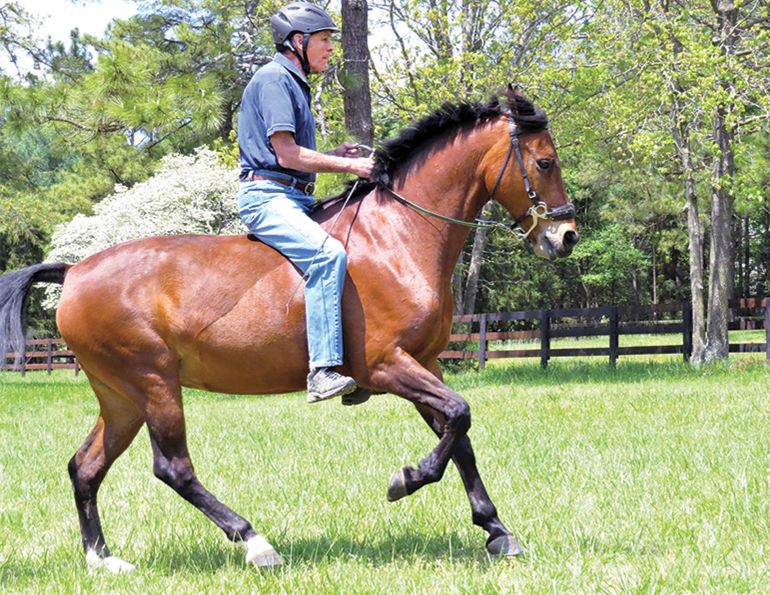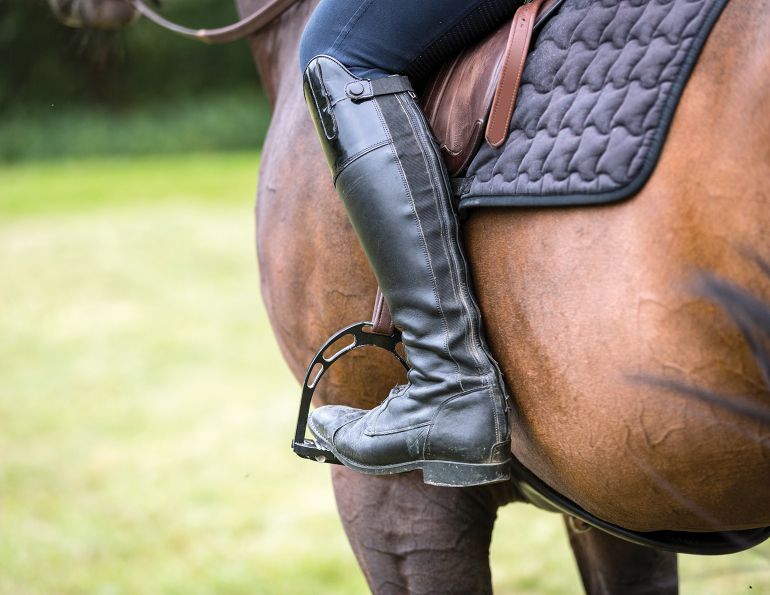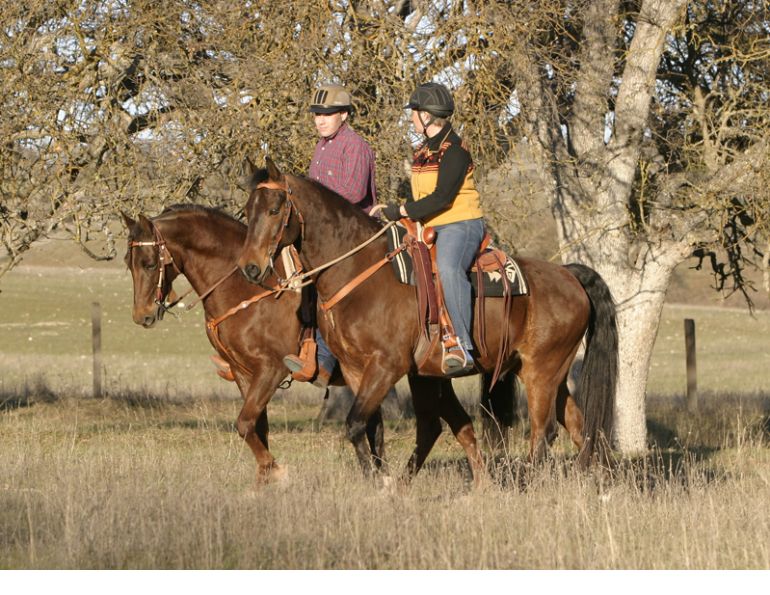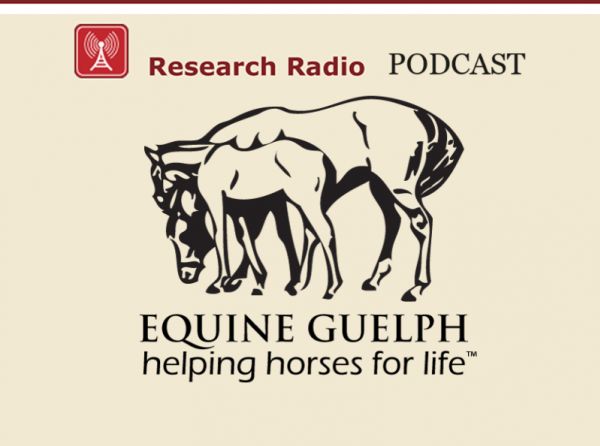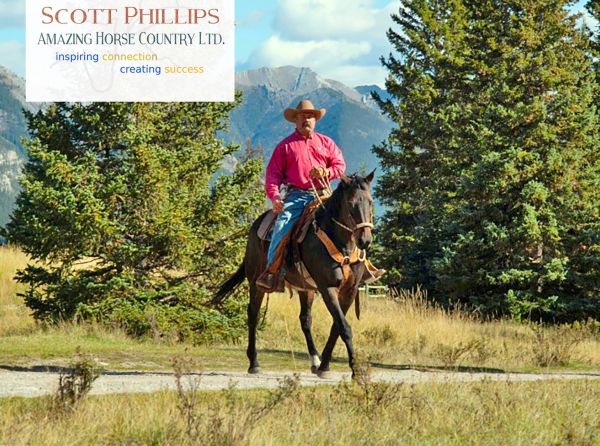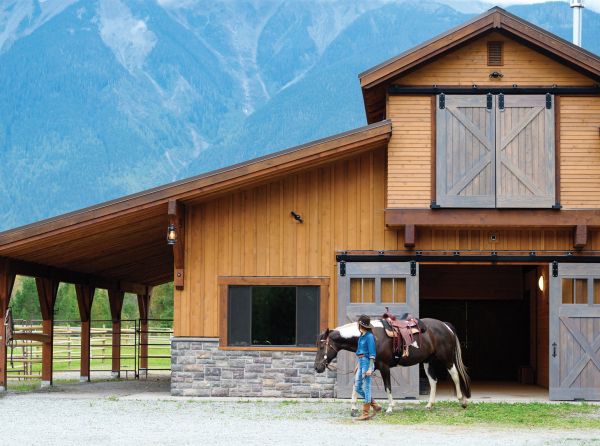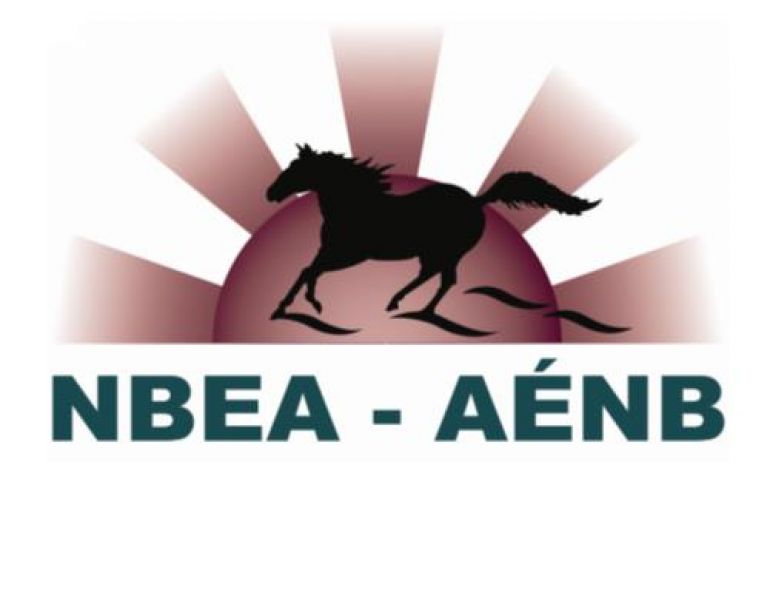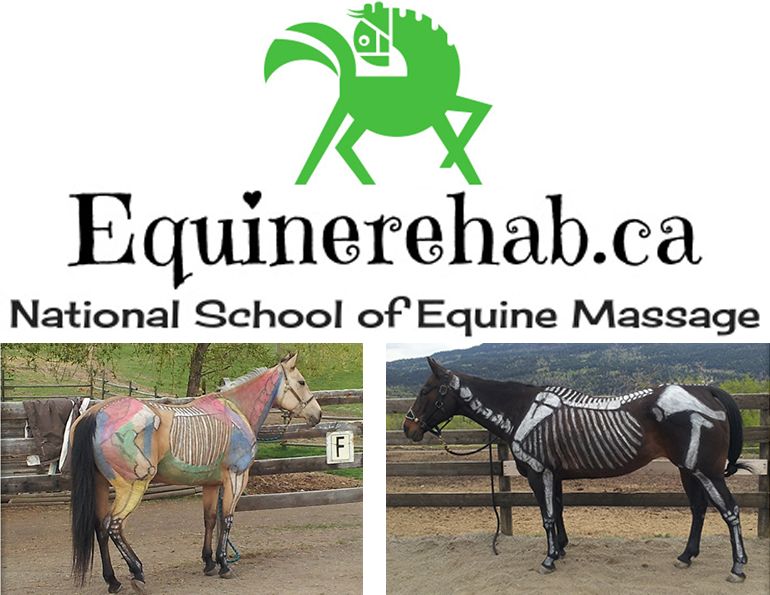Dragging a Log
In the previous article Build Your Horse's Confidence Part 1, I demonstrated how to build confidence around a horse’s personal space bubble by dragging a post with my new seven-year-old Canadian Warmblood named Bellagio, or “Geo.”
Geo is a very skeptical, sensitive, and quite explosive horse when he is worried. I have had him for about six months and decided to completely restart him as if he had never been ridden. He was originally started with the goal becoming a jumper, but he quickly ran into problems because of his sensitivity.
In part one of this two-part series, I showed you the groundwork to teach a horse to be confident pulling a post and having ropes touch different parts of his body. Each time I help my horse through one of these issues, I know that it relates to more than one specific thing, and has a range of benefits. If each challenge I present to my horse is done properly with patience and timing, I am actually helping him to become a calmer, braver, and therefore a safer horse. I’m more confident with my horse only after I have taken him through a variety of situations that he has handled well. This way, when we are faced with an uncertain situation, he has the confidence to move through it safely.
Today we advance to the point where I am riding Geo with a post dragging around him. I have outlined a series of progressive steps to help Geo safely transition to this stage. The key is to be able to handle both the ropes and the horse efficiently while mounted. I have done a lot of work to prepare Geo for this so I am confident that the next step is attainable for him. We are at one of my intensive horsemanship camps and my friend and student, Darryl James, is assisting me with Geo.
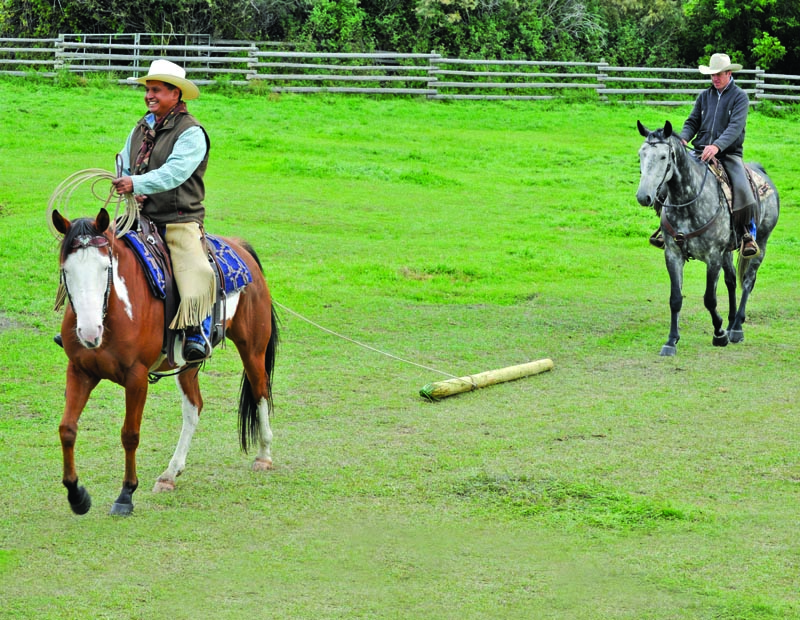
Above: Darrel, riding his confident young mare, drags the log as I ride Geo following behind. This is an excellent first step for Geo to observe the post being moved by the horse in front and build his confidence in the fact that the post’s movement is non-threatening. Horses build confidence by moving toward something and observing it, as Geo is doing in this photo. His eyes and ears are focused on the post. Photo: Robin Duncan Photography
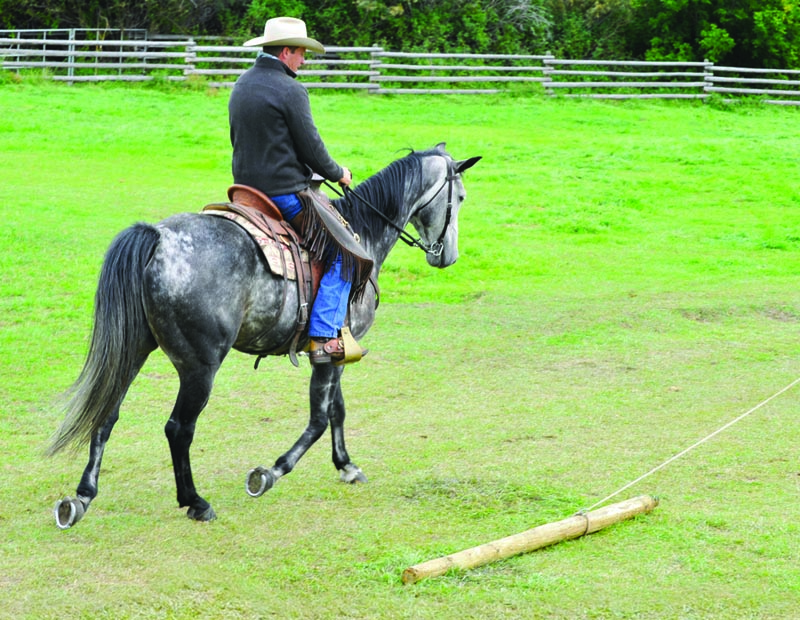
Above: Coming up alongside the moving post, you can see that Geo has more skepticism. He is a little lighter in his stride and his right ear is tipped down as he looks at the post moving beside him. Your horse’s body language and posture tell you everything. The post is now close enough to Geo to see how it is affecting him. He’s asking, “Is this OK?” But the post is not so close that he feels the urge to bolt. That is the key: To find the threshold where your horse is being slightly challenged, but not so much that he can’t think his way through it. If a horse becomes too scared, you have lost the brain to train. Photo: Robin Duncan Photography
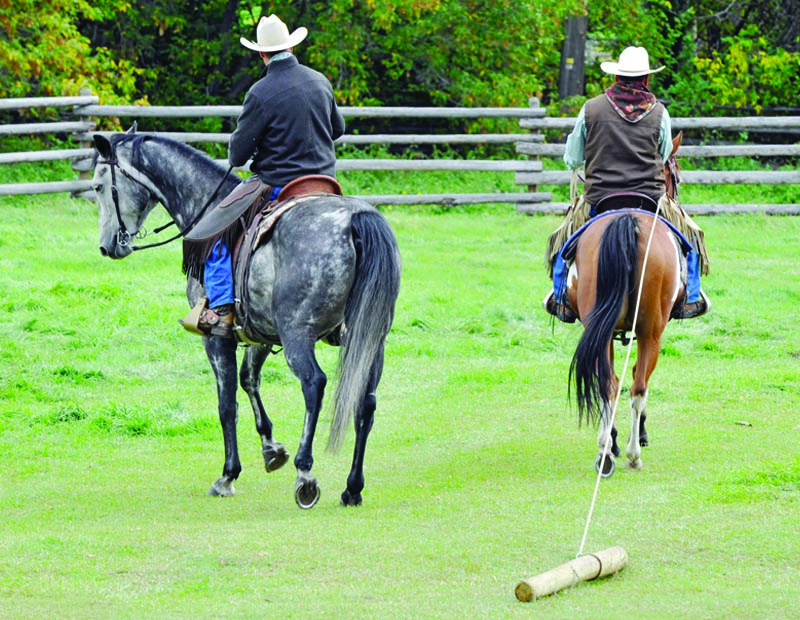
Above: All horses are very categorical. It’s an inherent trait that allows them to make sense of their world. Geo may think this post is okay when it’s out in front of him or when it’s on the side, but he may freak out when it’s behind him. It’s hard for us to rationalize but that’s the way the horse’s brain works. Knowing this, we must show the horse every possible alternative and angle when teaching that a specific object is okay.
At this stage, I am walking Geo along in this leg yield exercise with the post still being dragged on the ground. Geo is being shown the post from the vantage of his right eye, then his left eye, and back again. He needs that wide-scope view to understand that the post is not a threat from any angle. Photo: Robin Duncan Photography
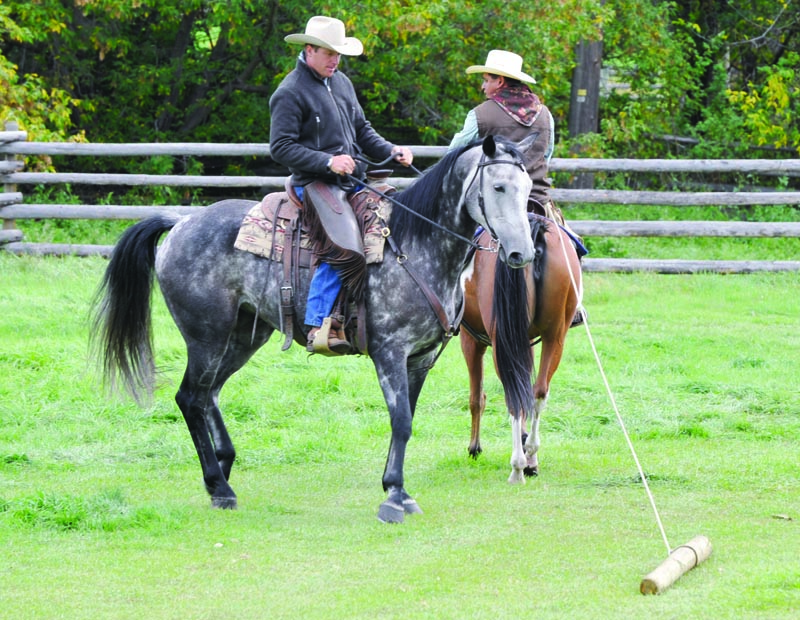
Above: Now I have Geo face the post and back up slightly while Darrel drags the log toward us. I am intentionally quite close and adding a bit more challenge because I feel that he is becoming more trusting. Photo: Robin Duncan Photography
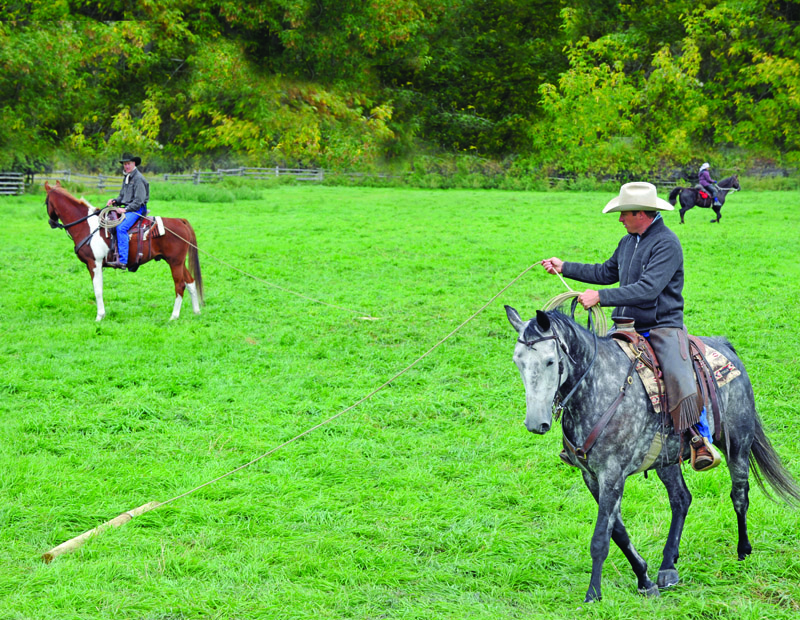
Above: We are finally on our own. Without moving the post, I ride circles around it, keeping a nice steady circle at the walk or trot. Geo’s slanted ear shows he is paying attention. I love these exercises when we circle the object successfully.
It’s a major safety concern if I change sides and the rope gets behind me and caught underneath his tail. He could clamp down his tail and run from the post, dragging it behind him. His instinctive fear of predators would kick in and he would think it’s chasing him. If I’m not aware of this risk, we could have a huge wreck in one second. I have learned these types of lessons firsthand over the years and would never want this to happen to someone else.
When I want to circle the other way I turn and face Geo to the post, flip the rope over his head, then change hands with the lariat rope and turn it over so the coils will come out through my fingers. I do all this before I begin riding the opposite circle. Photo: Robin Duncan Photography
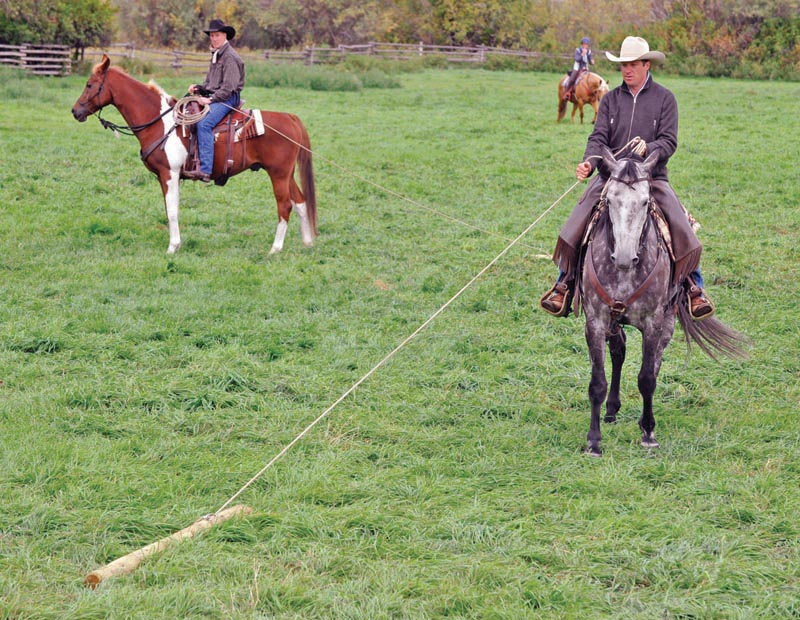
Above: The first time Geo will feel any tension and see movement in the post is when he is facing it. I still haven’t gone to my saddle horn and can lightly and easily let lots of rope out to create the distance. With this light post, I can also decide how much I want to drag it, if at all. By taking my time and walking towards the post and then dragging it back a little bit, Geo is showing that he is having no issues with it. Photo: Robin Duncan Photography
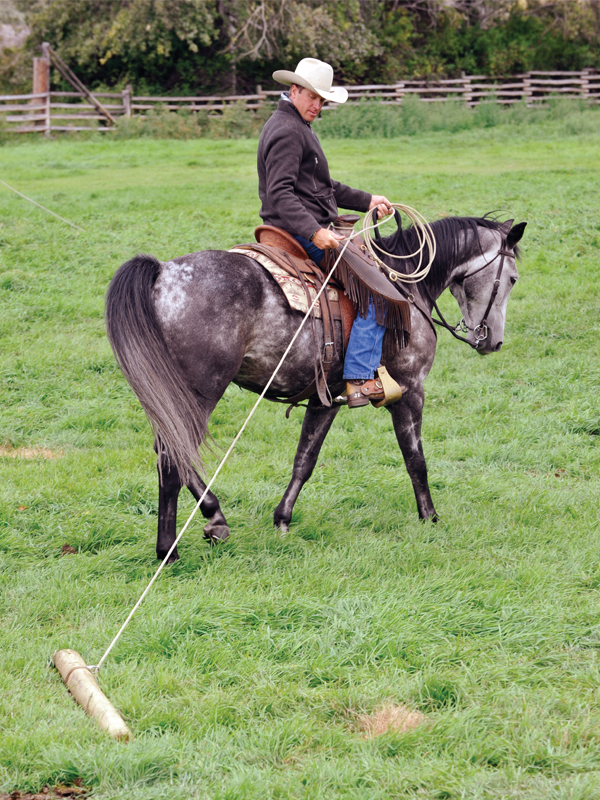
Above: Now we have progressed to the point where I have one wrap on my saddle horn and Geo is pulling the post all on his own. At this point I don’t yet have the confidence in him to take it around behind his hindquarter. I won’t do that until I do more groundwork with Geo as I outlined in Build Your Horse's Confidence Part 1. Photo: Robin Duncan Photography
Summary
I always find myself drawn to sensitive and skeptical horses. I enjoy the process of helping them become confident and capable. It is my belief that success comes from knowledge and experience. I encourage horse owners of all disciplines to gain as much knowledge as they can. Articles, books, clinics, and DVDs are much more available today than they were in years gone by. Become a student of the horse and treat horses like horses, not like people, dogs, or large pets. The better your foundational knowledge about horses, the higher you can go to achieve extraordinary results with any horse in any discipline.
The foundation training in your horse’s development is the most important training he will get in his life. When things go wrong at the higher levels your answers always come back to the foundation, which has two parts:
First - The broad foundation knowledge of the horseman or horsewoman. In my mind there are riders and then there are horsemen. They are not the same. Focus on your horsemanship and understand the behaviour, engagement, and motivation of horses.
Second – I look to see whether a qualified person has taken the time to give the horse a proper start and the foundation training to provide him with the confidence and skills to be able to achieve at higher levels. By higher levels I mean a horse capable of performing both in the show arena and as a mount to take a green person out on the trail. I look at that horse as a very high-level horse, and hard to come by.
Find someone who has a program, a system, and a philosophy that matches yours. Study intensely and you will have so much more fun when dealing with the everyday issues that come up with horses. Maybe one day you'll even go looking for challenging horses to help, and give them a brighter future.
With enough knowledge, frustration can truly turn into fascination. That’s when you know you’re getting there!
Remember, as always, stay inspired by horses!
Related: Build a Horse's Confidence with Tarps, Part 1
Related: Broke Horse vs. Schooled Horse
Main Photo: Robin Duncan Photography



